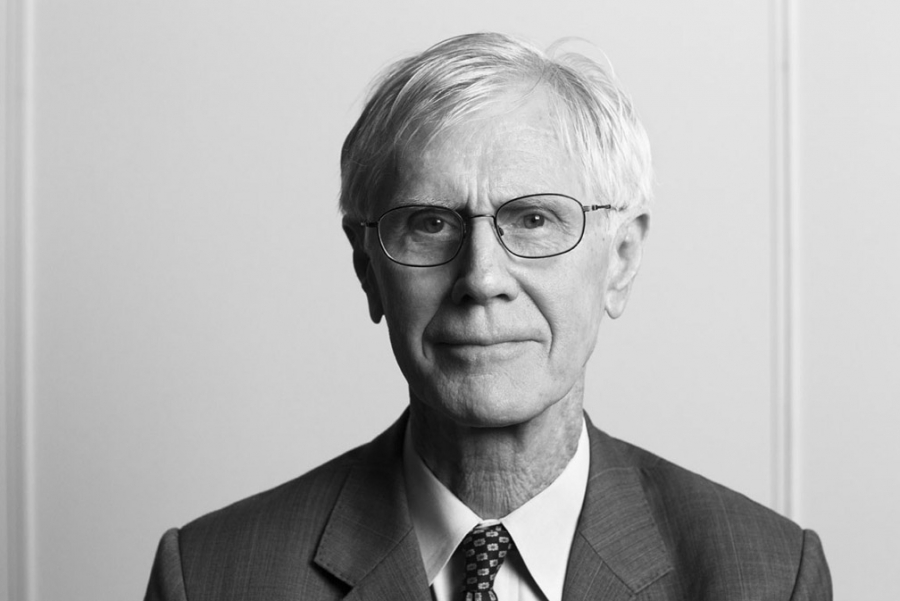
China and the World after COVID-19: A conversation & book launch
The Dukakis Center at ACT will initiate a new series of public events dedicated to a better understanding of China’s role in contemporary international, in tandem with an internship program for college undergraduates designed to encourage young people to examine media coverage of China and China’s interaction with the world.
The first event in the new series will be a webinar on March 10 featuring Orville Schell, Arthur Ross Director of the Center on U.S.-China Relations at Asia Society in New York. The webinar will be co-hosted by the Manchester China Institute at the University of Manchester in the UK.
The event will be moderated by David Wisner, Executive Director of the Dukakis Center, author or of a China Watch initiative at ACT from 2000-2005. Peter Gries, Director of the Manchester China Institute, will appear as a respondent.
The specter of Chinese power and influence is a major preoccupation not only for the United States, however, but also for the European Union, its individual member states, and its non-member neighbors, for example in Southeast Europe. The Chinese imprint on the Greek economy, for instance, has grown significantly over the past two decades, in such areas as maritime trade and transport infrastructure, energy, and tourism. Greece has signed on to the 17+1 initiative, and Greece has been viewed as a growth area in the post-COVID period.
While the origins of the coronavirus in the Chinese city of Wuhan are still steeped in mystery and plagued by targeted disinformation, few debate the effectiveness of the Chinese response and its impressive return to economic growth a year after the outbreak of COVID-19. Meanwhile, the impact of China’s economic influence globally continues to be so great that Western entrepreneurs are now looking to China for emerging trends in sectors ranging from retail to high tech.
To help make sense of what some are already calling the “Chinese Century,” the Dukakis Center and the Manchester China Institute have invited renowned China expert Orville Schell of the Asia Society to present his new novel, a dramatization about a father and son living in Mao’s China, and to think aloud about what to expect from China after COVID-19.
The webinar will commence with a discussion of the legacies of China’s Cold War past in Chinese domestic and foreign policies today, before exploring the prospects for China’s relations with the world after Covid-19. Audience members will be invited to ask questions.
Orville Schell is the Arthur Ross Director of the Center on U.S.-China Relations at Asia Society in New York. He is the author of ten books about China and a contributor to numerous edited volumes. He has written widely for many magazines and newspapers, including The Atlantic Monthly, The New Yorker, Time, The New Republic, Harpers, The Nation, The New York Review of Books, Wired, Foreign Affairs, the China Quarterly, and The New York Times, the Washington Post, and the Los Angeles Times. Schell is a Fellow at the Weatherhead East Asian Institute at Columbia University, a Senior Fellow at the Annenberg School of Communications at USC, and a member of the Council on Foreign Relations. He is a former professor and Dean at the University of California, Berkeley Graduate School of Journalism. He is the recipient of many prizes and fellowships, including a Guggenheim Fellowship, the Overseas Press Club Award, and the Harvard-Stanford Shorenstein Prize in Asian Journalism.
Peter Hays Gries is the Lee Kai Hung Chair and founding Director of the Manchester China Institute at the University of Manchester, where he is also a Professor of Chinese politics. He was previously founding director of the Institute for US-China Issues at the University of Oklahoma. He studies the causes and consequences of how Chinese feel and think about the world—and how the world feels and thinks about China and is particularly interested in the dynamics of mis/perception and mis/trust.
Register here for the Zoom Webinar: http://bit.ly/3rk8Fif
